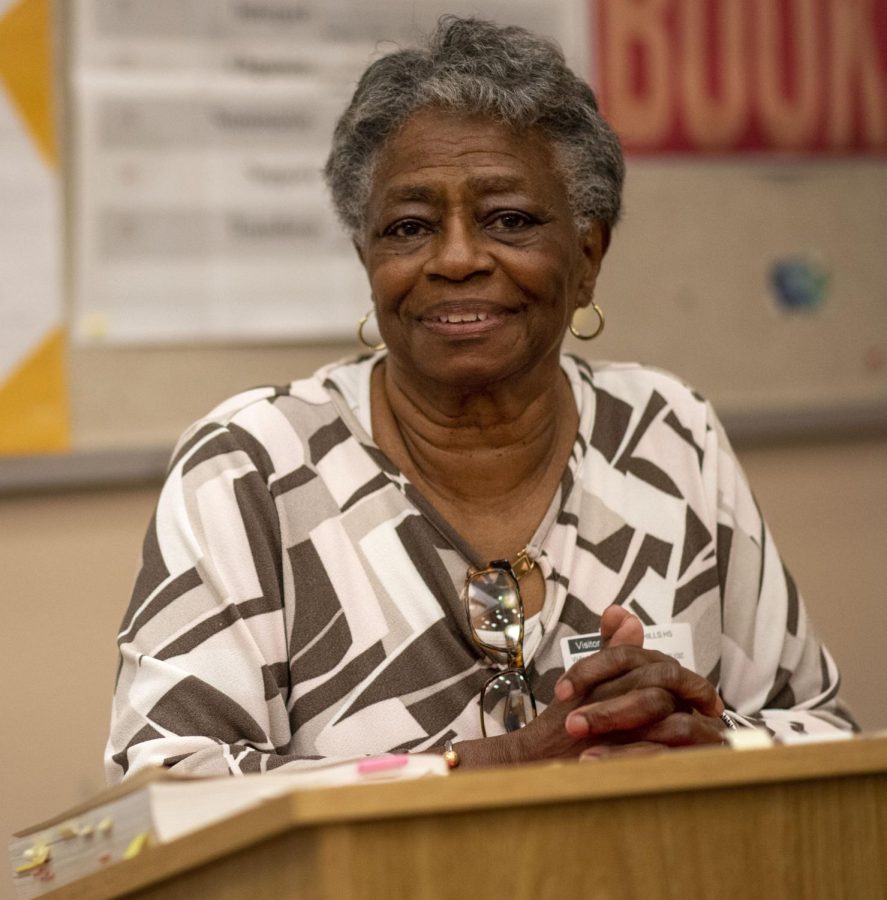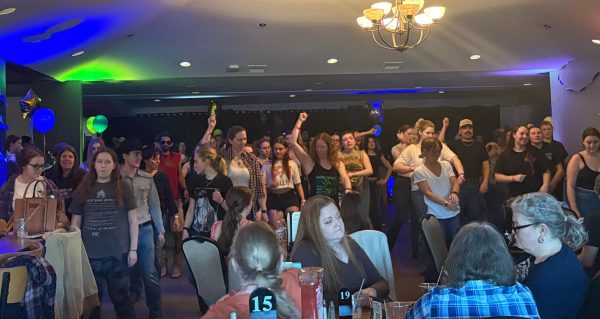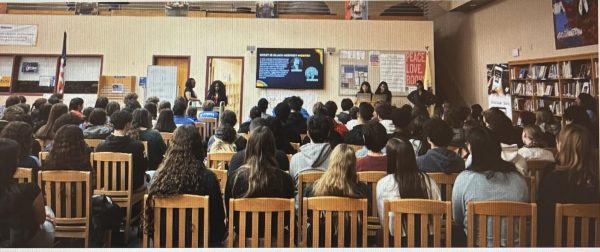Local Historian Educates Students on Black History
Local historian Ana Walls spoke to Warren Hills Regional High School students April 17 about local Black history, presenting a Library Showcase about voting rights, local slavery and Reconstruction after the Civil War.
The octogenarian speaker emphasized the importance of youth using their rights to vote and using their voices to make political change.
She said that she feels passionate about these topics because her grandparents were unable to vote. Although her parents legally should have been allowed to cast votes, rules designed to discourage African-Americans from voting – like poll taxes, which are taxes usually levied on adults who want to vote – prevented them and other Black Americans from doing so.
“I’ve always had a problem with the 15th Amendment because I’ve always felt it was wishy-washy,” Walls said. “In simple terms, it means that Black men could be denied the right to vote.”
In 1865, the 13th Amendment to the U.S. Constitution was ratified, with the purpose of outlawing slavery. The 14th Amendment made all African-Americans, including past slaves, citizens of the United States, granting them equal protection under the law. The 15th Amendment, ratified in 1870, granted men the right to vote, regardless of their race. (Women would not be allowed to vote under the Constitution until the ratification of the 19th Amendment in 1920.)
Interpretations of “the amendments continue to change, as well as the meaning of the words,” Walls warned. “Each state can change the amendments at any time, or add on to them if they choose.”
As for local Warren County history, by 1924 many Black families had moved into the Washington area.
Walls said that the experiences of racism for her were relatively few, since she lived in a small-town area like Washington. Still, there were certain sections that were racially segregated.
For example, she said that, in her younger days about a half century ago, Blacks could not go into the movie theater on Route 57 at Route 31, and a restaurant on Washington Square would not serve Blacks.
Walls told her Warren Hills audience about her involvement in a sit-in at the restaurant. She said that she, her sister and a friend sat down at the counter of the restaurant, waiting to be served. A young, white waitress ignored them and kept wiping the counter. Eventually, the white manager came over and asked what they wanted, so they ordered hamburgers. When they finished eating, they ordered dessert, even though they felt uncomfortable.
This instance of protest eventually enabled other African-Americans to eat at that restaurant.
Nationally, Walls said that after slavery was outlawed, white people tried to recreate what slavery was like by forming hate groups like the Ku Klux Klan, passing Jim Crow laws, and approving segregation disguised as “state laws.”
Another loophole white people found after the Civil War, Walls said, was the Black Codes, which were contracts that were used to limit Black people’s freedom through labor contracts. This was actually a form of enslavement, Walls said, and it made arrests of Black people easier.
Walls added that she wants to remind all students that they must secure justice by exercising their rights to make changes where they see fit.
“I’m fighting, I’m hopeful and I’m prayerful,” she said.
Walls’ presentation revealed the history behind the Black people that literally built the town that most Warren Hills students walk through every day.





